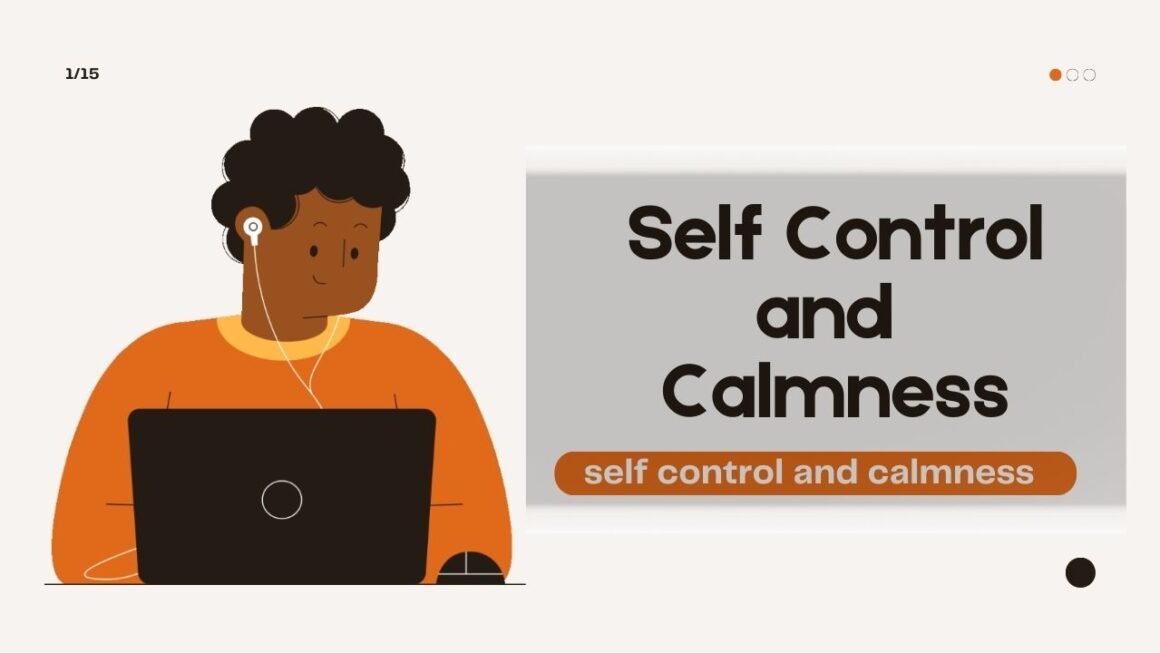In the pursuit of personal growth and success, two qualities stand out as indispensable: self-control and calmness. The quote, “Self-control is strength. Calmness is mastery,” encapsulates the essence of these virtues. In this article, we delve deep into understanding the significance of self-control and calmness in achieving personal mastery.
Defining Self-Control and Calmness
Self-Control:
Self-control refers to the ability to regulate one’s emotions, thoughts, and behaviors in the face of temptations, impulses, and distractions. It involves resisting immediate gratification in favor of long-term goals and values. Individuals with high self-control exhibit discipline, willpower, and resilience in managing their actions and reactions.
Calmness:
Calmness, on the other hand, pertains to a state of inner peace, tranquility, and equanimity. It involves maintaining composure, even in challenging or stressful situations. Calm individuals are not easily rattled by external circumstances; instead, they remain grounded and centered, able to make rational decisions and respond thoughtfully rather than react impulsively.
The Interplay Between Self-Control and Calmness
Self-control and calmness are closely intertwined, each reinforcing the other in the journey towards personal mastery.
Self-Control Fosters Calmness:
When individuals exercise self-control, they cultivate a sense of inner strength and stability. By resisting impulsive urges and maintaining discipline, they reduce the likelihood of succumbing to stress and anxiety. This, in turn, promotes a state of calmness, enabling them to navigate life’s challenges with poise and grace.
Calmness Enhances Self-Control:
Similarly, cultivating calmness enhances one’s ability to exercise self-control. When individuals are calm and centered, they are better equipped to make rational decisions and resist temptations. Instead of being swayed by emotions or external pressures, they can tap into their inner reserves of strength and resilience, staying true to their goals and values.
Strategies for Cultivating Self-Control and Calmness
Achieving personal mastery requires intentional effort and practice. Here are some strategies to cultivate self-control and calmness in daily life:
Mindfulness Meditation:
Mindfulness meditation involves cultivating present-moment awareness and acceptance without judgment. By practicing mindfulness regularly, individuals can develop greater awareness, emotional regulation, and resilience, laying the foundation for both self-control and calmness.
Emotional Regulation Techniques:
Learning to identify and regulate emotions effectively is key to developing self-control and calmness. Techniques such as deep breathing, progressive muscle relaxation, and cognitive restructuring can help individuals manage stress, anxiety, and impulsivity, fostering a greater sense of inner peace and balance.
Setting Boundaries and Prioritizing:
Setting clear boundaries and priorities allows individuals to focus their time, energy, and resources on what truly matters to them. By saying no to distractions and non-essential commitments, they can create space for activities that promote , such as exercise, hobbies, and meaningful relationships.
Practicing Gratitude and Positivity:
Cultivating a mindset of gratitude and positivity can shift one’s perspective towards the present moment and foster a sense of inner contentment. By focusing on the blessings and opportunities in their lives, individuals can reduce stress, increase resilience, and cultivate a deeper sense of calmness amidst life’s ups and downs.
FAQs
Conclusion
In conclusion, are foundational virtues that pave the way to personal mastery and success. By cultivating these qualities through mindfulness, emotional regulation, boundary-setting, and gratitude, individuals can harness their inner strength and resilience to navigate life’s challenges with grace and confidence. Remember, “Self-control is strength. Calmness is mastery.”
